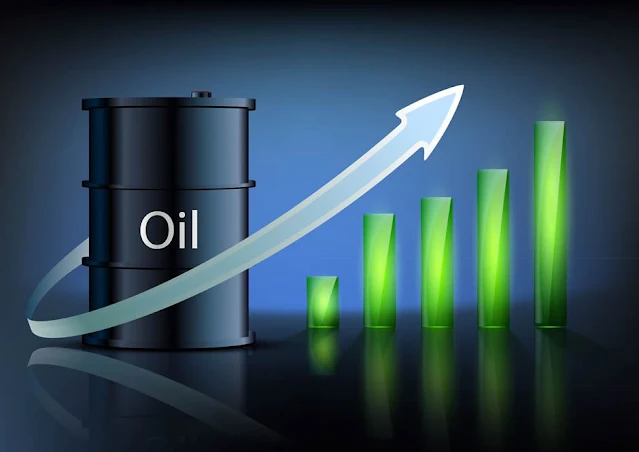Ad Code
Translate
Five Do’s For a Healthy Turnover That Bolsters Talent-Retention
Smart strategies for trading on crypto exchanges
What is Ozempic (semaglutide)? (Updated in 2025)
Discover Honeybee Pharmacy (2025 Guide Important Consumer Tips)
Posture Bra: Improving Back Support and Comfort
How To Find Suitable Properties In Cyprus?
10 Effective Strategies to Improve Domain Authority of Your Website
🛢️ Investing in Oil: The Pros and Cons (2025 Edition)
Oil has long been one of the world’s most influential commodities, shaping economies, fueling industries, and influencing geopolitics. For investors, it remains a compelling yet complex asset class. If you're wondering whether to add oil to your investment portfolio, understanding the advantages and risks is key.
This guide unpacks the pros and cons of investing in oil in 2025, explores the best ways to invest, and offers insights into market trends shaping oil as an investment today.
🌍 Why Invest in Oil?
Despite the global push for clean energy, oil remains essential to the world economy. It's used not just for fuel, but for manufacturing plastics, chemicals, pharmaceuticals, and more. In 2025, several market dynamics make oil a noteworthy asset class:
🔼 Current Trends Supporting Oil Investment:
- Rising global demand from emerging economies and the post-pandemic recovery.
- Tighter supply due to OPEC+ production cuts and reduced upstream investment.
- Geopolitical instability in oil-producing regions (e.g., the Middle East, Ukraine-Russia) creates supply risks and price spikes.
- Inflation hedge: Commodities like oil tend to hold value during inflationary periods.
🧾 How to Invest in Oil
There are multiple ways to gain exposure to the oil market:
1. Oil Company Stocks
Invest in major oil producers (e.g., ExxonMobil, Chevron, Shell) or smaller exploration and production firms. These companies benefit from rising crude prices.
2. Energy ETFs and Mutual Funds
Diversify risk by buying exchange-traded funds like:
- XLE (Energy Select Sector SPDR)
- VDE (Vanguard Energy ETF)
- OIH (Oil Services ETF)
3. Oil Futures Contracts
For experienced investors, futures allow you to speculate directly on crude oil prices. Futures are high risk and require significant capital and knowledge.
4. Royalty Trusts and MLPs
These income-generating investments distribute profits from oil and gas production but come with tax implications.
✅ Pros of Investing in Oil
1. Strong Global Demand
Even in a green-energy future, oil will still be needed for decades, especially in transportation, aviation, plastics, and developing nations.
2. Potential for High Returns
Volatility in oil prices creates profit opportunities, especially during global conflicts or supply shocks.
3. Inflation Hedge
Commodities like oil often rise in value when inflation climbs, offering a counterbalance to traditional assets.
4. Portfolio Diversification
Oil and energy assets tend to perform differently than tech or financial stocks, helping reduce portfolio concentration risk.
5. Dividend Income
Many oil companies offer attractive dividend yields, making them suitable for income-focused investors.
⚠️ Cons of Investing in Oil
1. Price Volatility
Oil prices are highly sensitive to global events, economic data, and OPEC decisions. A barrel of oil can swing wildly within weeks.
2. Geopolitical Risk
Political instability in major oil-producing countries can disrupt supply chains and affect oil-related investments unpredictably.
3. Environmental and Regulatory Pressure
The global shift toward decarbonization and ESG (Environmental, Social, Governance) investing may reduce investor appetite and trigger stricter regulations.
4. Declining Long-Term Demand
Electric vehicles, renewable energy expansion, and energy efficiency improvements may curb future demand, pressuring oil stocks long term.
5. Complex Market Structures
Oil markets involve futures, benchmarks (e.g., Brent vs. WTI), storage logistics, and geopolitical complexities that can overwhelm novice investors.
📊 Outlook: Is Oil Still a Good Investment in 2025?
As of mid-2025, Brent crude trades around $85–$95 per barrel, with forecasted upside amid ongoing supply constraints and geopolitical instability. However, transition risks (from fossil fuels to clean energy) mean oil should be viewed as a medium-term tactical play rather than a forever hold.
🧠 Conclusion: Should You Invest in Oil?
That depends on your goals.
| Investor Profile | Oil Suitability |
|---|---|
| Long-Term ESG Investor | ❌ Better to avoid or limit exposure |
| Growth-Oriented Trader | ✅ High risk, high reward potential |
| Income-Seeking Investor | ✅ Look at dividend-paying oil stocks |
| Beginner Investor | ⚠️ Consider energy ETFs to reduce risk |
📌 Pro Tip:
If you’re new to commodities, consider starting with diversified energy ETFs or large-cap oil producers rather than trading volatile futures contracts.



Social Plugin